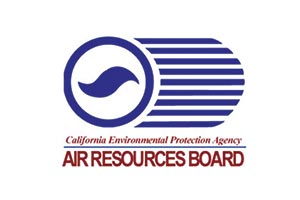States, Environmentalists Seek to Intervene in Federal Phase 2 Greenhouse-Gas Appeal

This story appears in the Feb. 6 print edition of Transport Topics.
Eight states, including California, and five environmental advocacy groups have asked a U.S. appellate court for permission to intervene in a civil case between the Truck Trailer Manufacturers Association and two federal agencies concerning the final Phase 2 greenhouse-gas rule — just one month after TTMA filed its petition for review.
In separate motions Jan. 23, the two coalitions told the U.S. Court of Appeals for the D.C. Circuit that they want to join the case in support of the regulation written by the Environmental Protection Agency and the National Highway Traffic Safety Administration.
TTMA said in its Dec. 22 petition that it wants the circuit court to vacate Section IV of the Phase 2 rule, which would regulate the manufacturing of trailers starting in 2018.
“California feels this is necessary because transportation is our largest GHG emission source, and trucks are responsible for about a fourth of the transportation emissions,” California Air Resources Board spokesman David Clegern said in a statement.
“In addition, about 60% of the trucks on the road in California were purchased out of state, and we must rely on stringent federal standards to help ensure the compliance of those vehicles,” Clegern said. California is the lead party in the eight-state coalition.
Half of the states that filed are in New England. Rhode Island Attorney General Peter Kilmartin filed on behalf of his state.
“Climate change, caused primarily by significant increases of emissions of greenhouse gases, is adversely impacting Rhode Island in many diverse ways, including warming air temperatures, warming ocean temperatures, rising sea level, increased acidity of ocean waters, increased rainfall amounts and increased intensity of rainfall events,” Kilmartin spokeswoman Amy Kempe said.
Citing projections from the National Oceanic and Atmospheric Administration, Kilmartin is concerned that the sea level in Rhode Island will rise by one foot by 2035 and by 1.9 feet by 2050.
“This has critical implications for Rhode Island, as thousands of acres of Rhode Island’s coast will be affected,” Kempe said.
Connecticut, Iowa, Massachusetts, Oregon, Vermont and Washington also are joining in the motion.
The five environmental groups that combined in a second motion to the court in favor of the rule as written are the Environmental Defense Fund, the Natural Resources Defense Council, the Sierra Club, the Center for Biological Diversity and the Union of Concerned Scientists.
“We intervened because the truck rule is very worthy of defense, and the truck trailer makers’ motion was not well-taken,” said Vera Pardee, counsel for the Center for Biological Diversity.
She said the rule is desirable because it will increase fuel efficiency for trucks and reduce oil consumption and carbon dioxide emissions.
“The rule pays for itself,” Pardee said, agreeing with EPA that fuel savings will more than cover added equipment costs.
The trailer makers have disagreed, saying that the voluntary EPA SmartWay technologies that will become mandatory do help some fleets, especially those that do on-highway longhaul work, but not all trailer buyers. Aerodynamic trailer attachments, TTMA said in its petition, do not improve mileage for local distribution work, creating costs without benefits.
Benjamin Longstreth, counsel for the Natural Resources Defense Council, said he expects the five groups will be allowed to intervene.
“We have intervened in quite a number of cases, especially with the EPA or Department of Energy. Generally, the court is interested in hearing our views,” he said, adding that appellate cases are different from actual trials.
“There will be no witnesses; this is quite different from a trial. All of the evidence will be from the agencies’ administrative record,” Longstreth said.
He expects the case will follow closely the points in the TTMA petition and a related one by the Racing Enthusiasts and Suppliers Coalition.
TTMA will file briefs first, then the government and the intervenors will respond.
There usually is a half-day of oral argument near the end of the process, perhaps about eight months from now, he said.
Pardee said she is somewhat concerned that the Trump administration EPA will simply back away from defending the rule, as the new president’s environmental preferences are very different from those of former President Barack Obama.
Longstreth said that is possible, but EPA and NHTSA would have to go through a new rulemaking process from the beginning.
“This is such a critical rule for our nation with cross-cutting benefits,” said Peter Zalzal, counsel for the Environmental Defense Fund.
He said the fund wants to “intervene to defend the rule and see that its benefits are realized. We look forward to defending the rule in court.”

